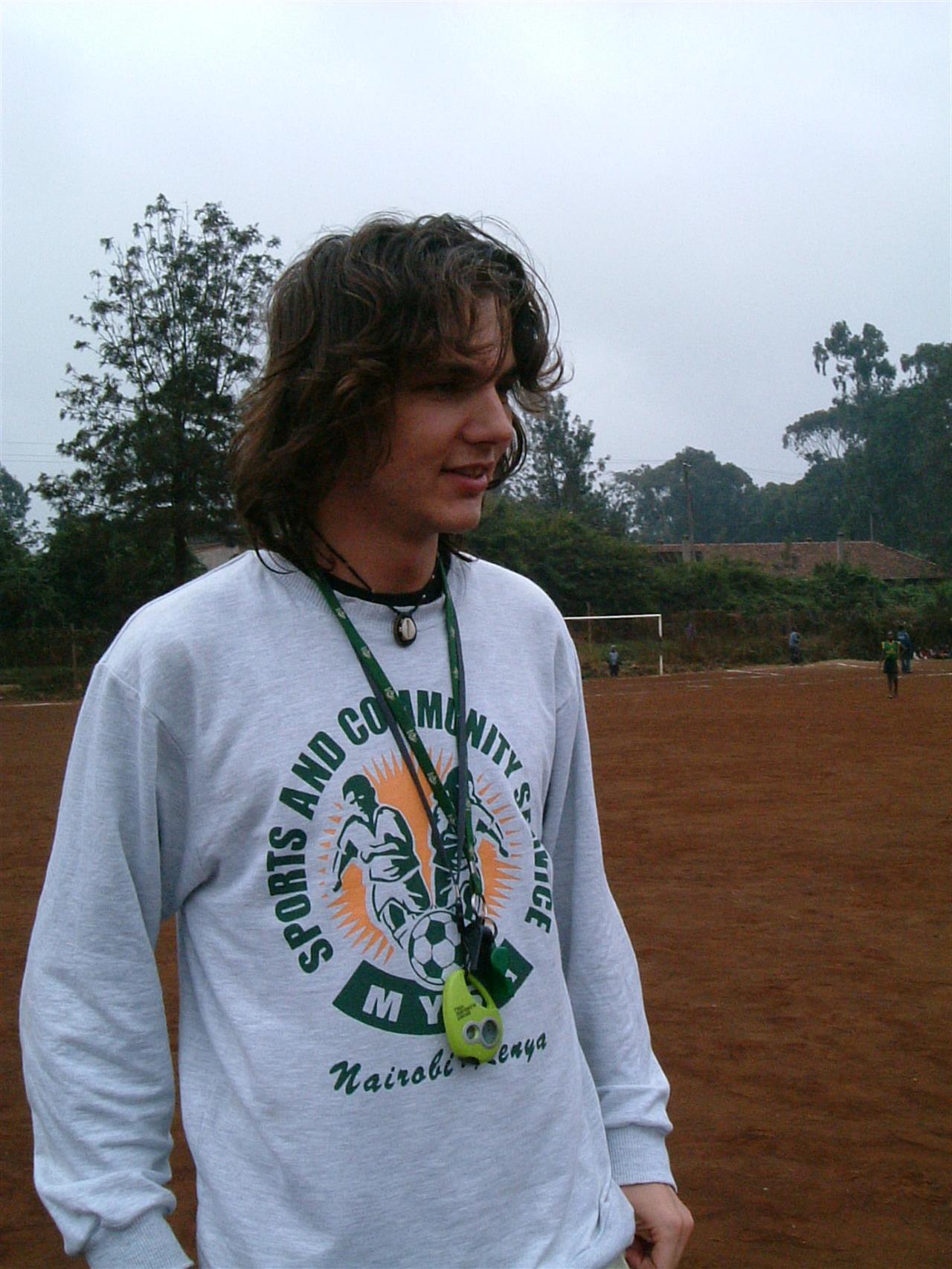Non profit
Football makes good
Non Profit ID card. “Football for Development” project and INEX-SDA based in Prague, Czech Republic.

Non Profit ID card: present your project/organisation/campaign
Questions answered by Robin Ujfaluši, director of INEX-SDA and one of the founders of Football for Development campaign.
– Where are you based? We are based in Prague, but we run projects and activities in other towns and regions of the Czech Republic too.
– What are you called? As organisation we are called INEX-SDA (since 1991 active in international volunteerism). Since 2005, we have been running the project Football for Development.
– What are you doing and why? We run raising-awareness campaigns and development-education programmes through football. Every year (for 3 to 4 weeks), we host a mixed team of boys and girls from Nairobian slums, organising tournaments and cultural events for the public, as well as workshops and movie screenings with discussions for high schools. We do it since football has proved to be a very effective tool both for attracting the attention of the media and the public, and for overcoming barriers between ordinary people.
– Do you have a website/email? Website: www.footballfordevelopment.net; Email:fotbal@inexsda.cz
– What makes you so special? We have been the first ongoing project connecting football and raising awareness on development issues in the region of Central and Eastern Europe. We also combine profound intercultural learning and development education programmes (for Kenyan and Czech peers) with intensive media campaigning for the general public.
The turning point
– How did you start? We started through a volunteer exchange between INEX (Prague) and MYSA (Nairobi) in 2005. We found out that there is so much potential to learn from each other (as organisations as well as cultures and individual youngsters) that we started searching for opportunities to strengthen the links.
– What keeps you going every day? 1) A team of committed people who cooperate on the project which is finally appreciated by concrete people, 2) The fact that football proves to combine effectively fun with more serious issues, 3) We can see the difference: in 2005, almost nobody in our country understood what the connection between football and development could mean; nowadays it is one of the best-known raising awareness projects in the field.
– Who is your target? The general public (for campaigning) and high schools (for development education). We also network with local football clubs and NGOs.
– How are you financed? Mainly by public sources – the Czech Ministry for Foreign Affairs (and its development agency) and the European Commission. To a lesser extent we are also financed by private companies.
The challenge
–A proud moment? The first year when we could see that the concept really works. The second year when the documentary about the project was broadcasted on TV prime time, right before the match Barcelona VS Manchester Utd. After 5 years, seeing that we are able to cooperate at European level and to seek for new opportunities in neighbouring countries.
– A problem you face? 1) Quite a few people still perceive mainly destructive aspects of football (vandalism, sectarianism, racism etc.), not seeing that football has also remarkable positive potential. 2) Finances. Because of that, we almost closed up in 2009. Another challenge might come in 2011.
– Your personal motto when things get hard? “What does not kill you makes you stronger.” I also like the motto of our Kenyan partners: “There are no problems, there are only challenges.”
– Another cool project/organisation/campaign you would like to recommend? As for football and its development potential in conditions of extreme poverty: MYSA Nairobi, Kenya: www.mysakenya.org.
For football as a tool for reconciliation process in post-conflict areas: Open Fun Football Schools, link: http://www.ccpa.dk/1-135-open-fun-football-schools.html
www.footballfordevelopment.net
Go to Vita Europe Non Profit ID card on Peace Games for football.
Click here to go to the full list of all our Vita Europe ID cards.
Nessuno ti regala niente, noi sì
Hai letto questo articolo liberamente, senza essere bloccato dopo le prime righe. Ti è piaciuto? L’hai trovato interessante e utile? Gli articoli online di VITA sono in larga parte accessibili gratuitamente. Ci teniamo sia così per sempre, perché l’informazione è un diritto di tutti. E possiamo farlo grazie al supporto di chi si abbona.
